Sustainability
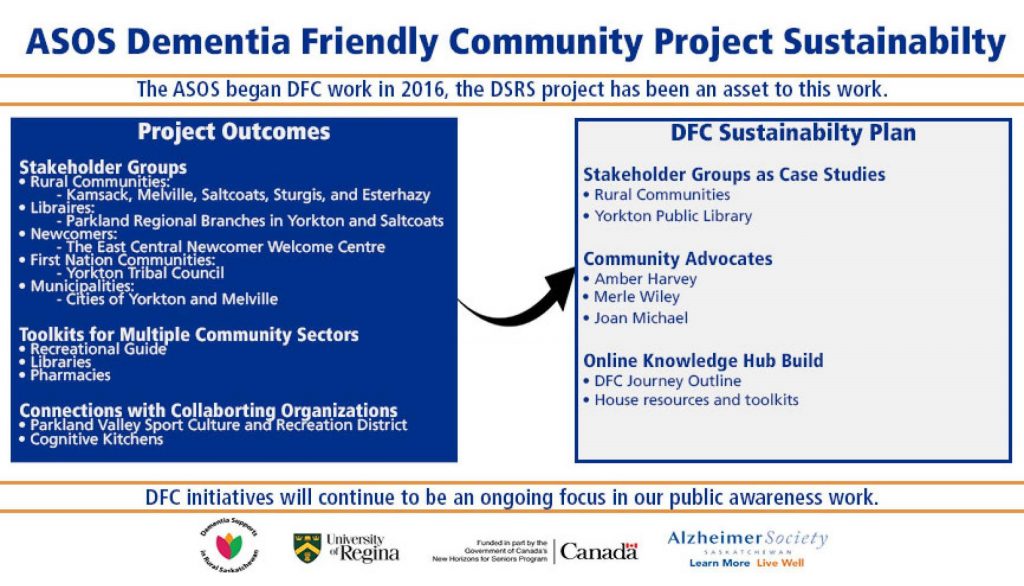
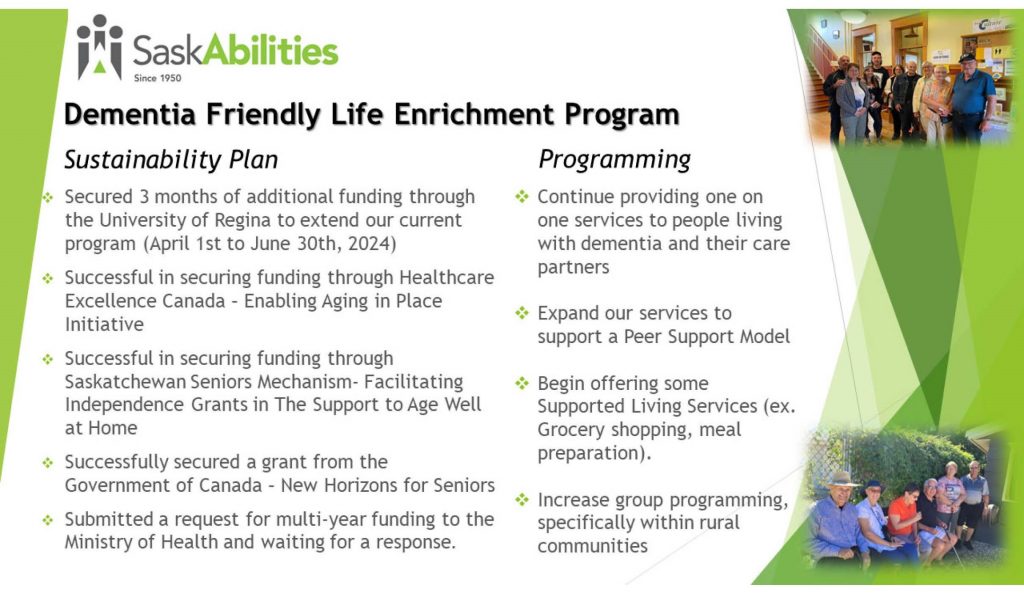
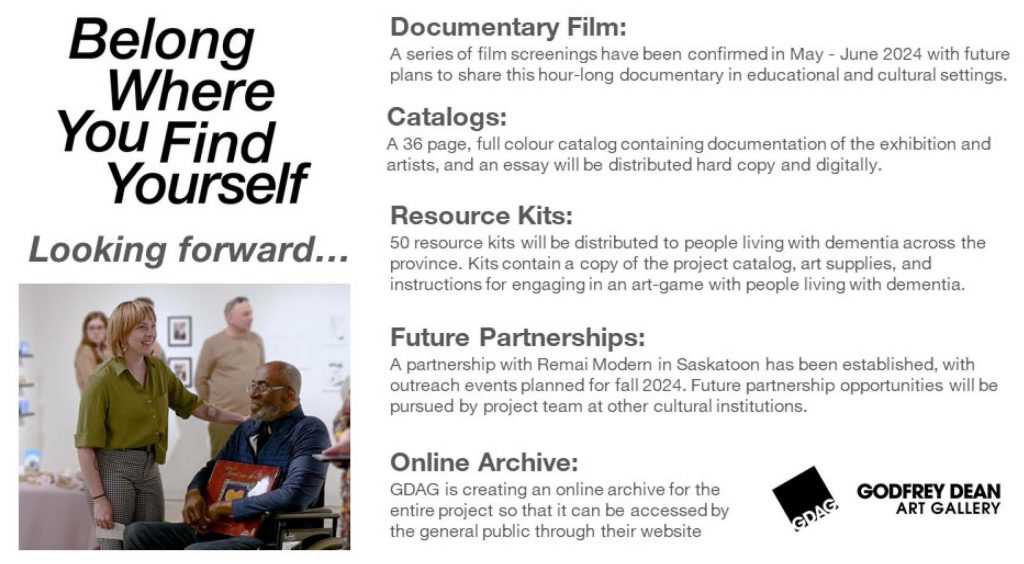
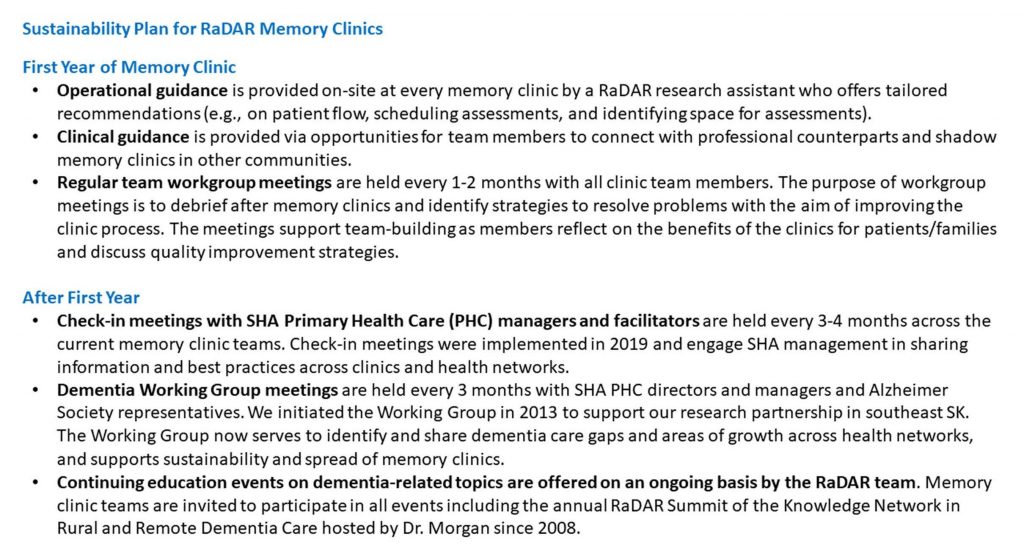
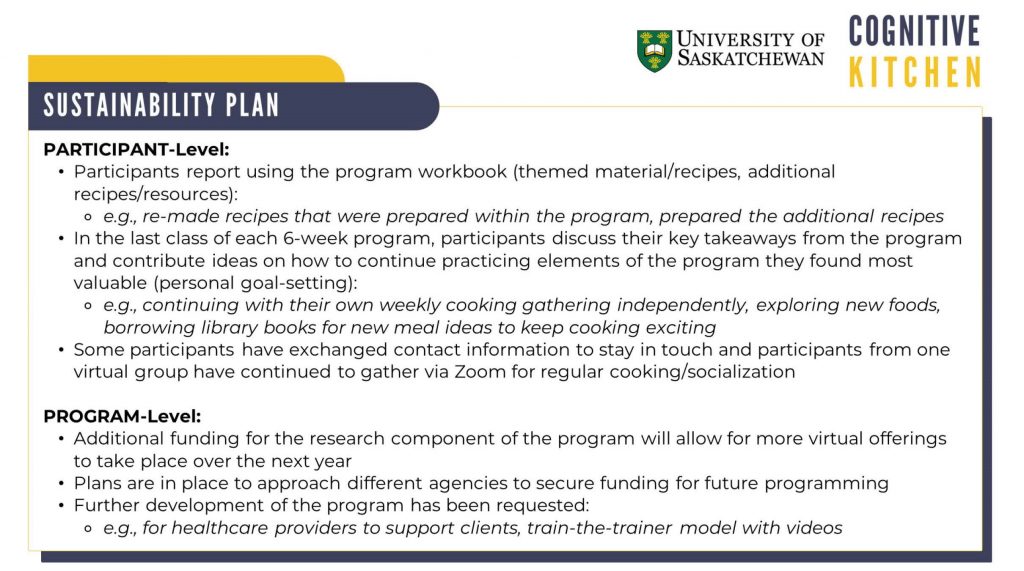
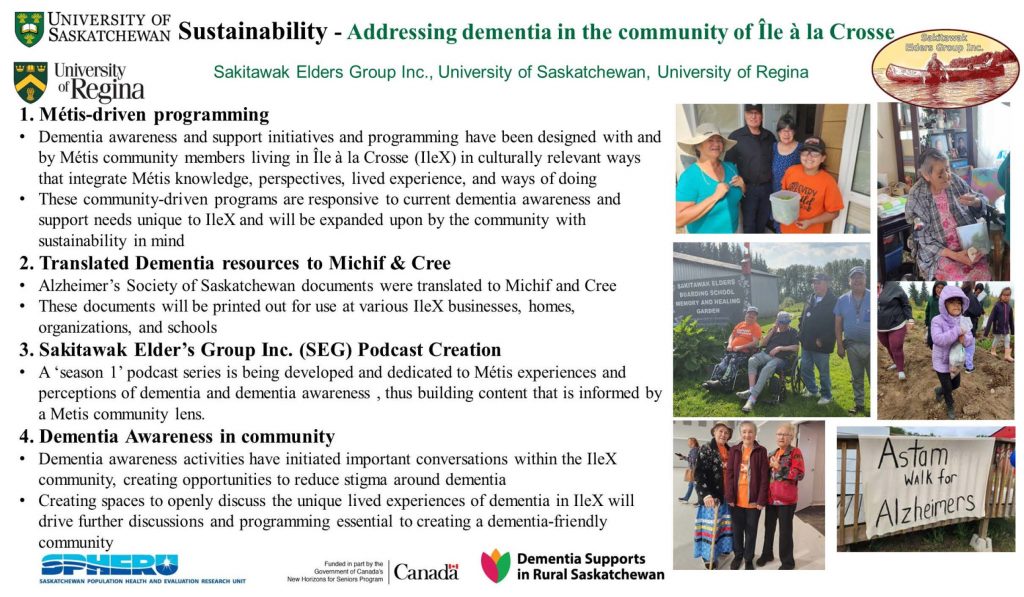
Transferability
Awareness Campaign and Dementia Friendly Initiatives highlighted the potential and limitations of rural communities to implement dementia initiatives that are sustainable. There are prospects for the organization to apply lessons learned to develop models and resources for other rural organizations. Resources and tool kits including the Building Dementia Friendly Communities Guide will be provided on the virtual knowledge hub that is currently being developed. The Alzheimer Society of Saskatchewan’s public awareness will continue to focus on dementia-friendly community initiatives.
Dementia Friendly Life Enrichment Program (DFLEP) transferability through the use of person-centered plans emerged as a key practice of the program that is feasible for implementation in institutions providing care for community members living with dementia. Facilitators used these plans to help families determine activities of interest that improve the quality of life for the person living with dementia. Over 30 person-centered plans were developed and constantly reviewed during the course of the project. The facilitators shared that the use of person-centered plans is flexible and highly adaptable, and thus suitable for training staff that are providing respite through Day Wellness, home care, or other similar programs in rural communities.
Belong Where You Find Yourself project is being developed into a learning module as teaching tool for students in undergraduate classes at post secondary educational institutions.
Scaling Up Rural Dementia Action Research (RaDAR) Memory Clinics in Rural Saskatchewan maintains its approach of periodically providing information webinars to Saskatchewan Health Authority management and primary healthcare directors to generate interest in other communities. Working in partnership with the Saskatchewan Health Authority enhances sustainability because the primary healthcare managers and directors oversee many memory clinics and are cognizant of the availability of health professionals within various communities.
The Cognitive Kitchen project team developed resources that highlight program structure and application of concepts. Three handouts were developed for care partners with details that would enable care partners to explore program concepts without the aid of a facilitator. Throughout the project period, the team liaised with other local organizations, including other DSRS collaborating organizations, which generated interest in the Cognitive Kitchen program approach. Healthcare stakeholders, including home care and long-term care staff, recognized the relevance of applying program concepts to dementia care and expressed interest in participating in initiatives to broaden the future Cognitive Kitchen program (e.g., tailor for use with homecare staff supporting clients living with dementia, adapt for long term care settings).
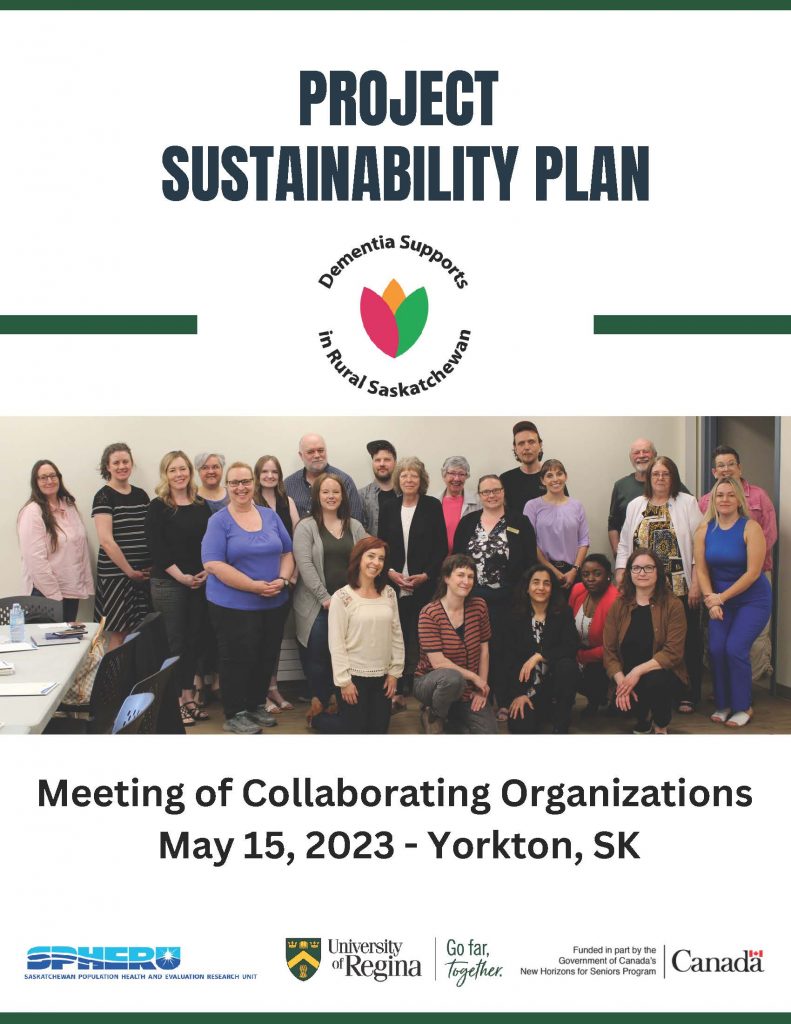
At the Collective Impact Meeting in May 2023, Collaborating Organizations provided updates on their project sustainability plans once the 5-year Dementia Supports in Rural Saskatchewan project, funded in part by the Government of Canada’s New Horizons for Seniors Program, comes to an end on August 31, 2024. Read full report: here
